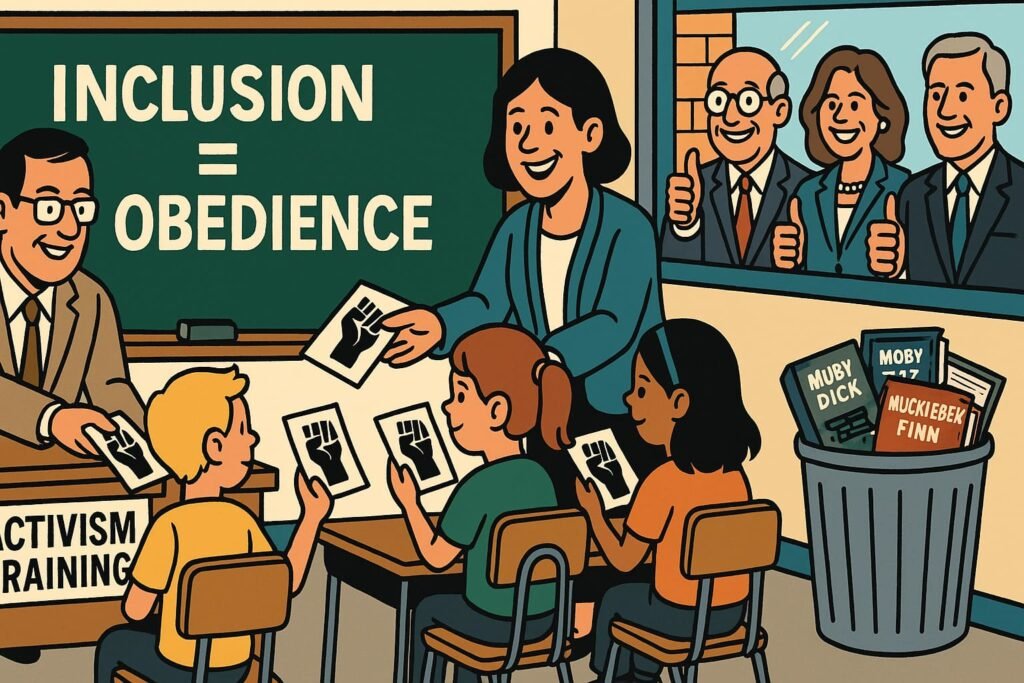Education & Curriculum Changes – Indoctrination in the Classroom
Schools were once about passing on knowledge — maths, history, literature, science. Today, classrooms are political battlegrounds. Education and curriculum changes have become tools for pushing ideology, shaping young minds not just with facts but with approved values.
Sold as “inclusion” and “progress,” these shifts often mean rewriting history, narrowing debate, and turning lessons into training sessions for the next generation of activists.
Table of contents
The Politicisation of Education
Education has always had a political edge — every society chooses what to teach. But in recent decades, especially under the banner of social justice, classrooms have shifted from education to indoctrination.
- History rewritten to highlight oppression above all else.
- Literature replaced by texts chosen for identity representation rather than merit.
- Science politicised when findings clash with ideology.
Instead of critical thinking, students learn which opinions are acceptable.
Inclusion or Indoctrination?
Curriculum changes are sold as making education fairer. In reality, they often exclude as much as they include:
- Dissenting voices labelled as harmful.
- Classic texts dropped for not meeting today’s moral standards.
- Teachers pressured to follow “correct” narratives or risk backlash.
The result? A culture where students memorise slogans instead of learning to question them.
The Role of Activism in Schools
Schools now act as pipelines for activism. Children are encouraged to “raise awareness,” join campaigns, and adopt fashionable causes. That might sound noble, but it shifts education away from knowledge and towards politics.
When classrooms become activist hubs, education stops preparing students for life and starts preparing them for ideology.
Who Benefits?
- Politicians gain influence by shaping the next generation’s worldview.
- Corporations benefit from a workforce trained to accept HR’s diversity jargon without question.
- Activists see their causes mainstreamed through education.
The losers are students, who miss out on a broad, balanced education and the skills to think for themselves.
The Long-Term Costs
An education system that teaches ideology over knowledge weakens society. Critical thinking erodes. Debate dies. And a generation grows up less able to challenge power because they’ve been taught to follow the script.
Conclusion
Education and curriculum changes are presented as progress, but they often narrow rather than expand young minds. They replace knowledge with activism, independence with conformity.
The next time you hear about a new curriculum update, ask: is this about learning, or is it about shaping belief?
Reader-Friendly FAQ Section
How is education being politicised?
Curriculum changes increasingly push ideology, focusing on identity and activism rather than broad knowledge and critical thinking.
Why are curriculum changes controversial?
They often drop classic works, narrow debate, and silence dissent, making education more about politics than learning.
Who benefits from these changes?
Politicians, corporations, and activists who want to shape future citizens — not necessarily the students themselves.
What is the risk of politicised education?
A generation less prepared to question authority, more likely to follow ideological scripts, and less skilled in independent thought.



